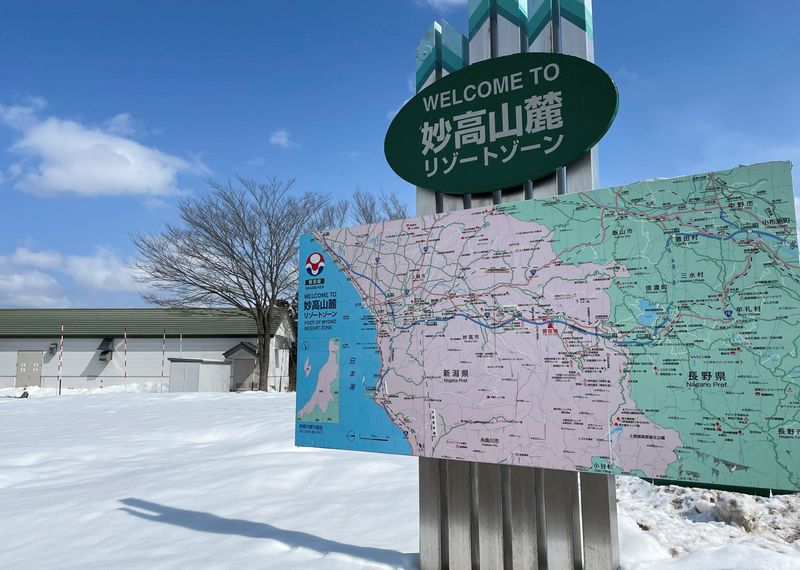By Mariko Katsumura and Rocky Swift
TOKYO (Reuters) - Patience Capital Group, the Singapore-based investor behind a $1.42 billion luxury ski project in northern Japan, is in talks to reopen its fund to new investors eager to get in before tightening by the Bank of Japan.
PCG's initial 35 billion yen ($237 million) fund, announced last year to transform Myoko Kogen in Japan's Niigata prefecture into a winter sports destination at par with Aspen and Whistler, may grow to 60 billion yen as new money from domestic and foreign investors piles in, said PCG founder Ken Chan.
Japan is riding twin booms in investment and inbound visitors, boosted by a weak yen that makes the country a bargain for foreigners. Chan set up PCG in 2019 to benefit from both, investing in accommodation and resort properties.
The BOJ is expected to move as early as next week, beginning a lengthy normalisation from about two decades of easy money policy. That shift, along with possible interest rate cuts by the Federal Reserve, is likely to drive the yen up from the near three-decade lows it trades at now, Chan said.
"It's clear from a macro perspective, this year is a very important year to put funds into yen assets, because the yen is too cheap right now," said Chan, who founded PCG after 19 years with Singapore's GIC sovereign wealth fund, where he acted as its Japan head.
"I think in the next few months, you will continue to see investors coming in to take an investment position in this market," he added.
Chan, who was born in Japan and spent his early childhood there, last year sketched out a plan to turn the Myoko Kogen area into a high-end winter paradise that can attract wealthy, globe-trotting snow fans.
His fund, which caters to institutional and high-net worth investors, has bought about 350 hectares of land which includes two existing ski slopes.
Chan said he is looking to buy other ski areas in the Myoko area if he can find willing sellers, and he has been in talks with railway operator Tokyu to purchase its Tangram resort nearby.
Although the full build-out will take about a decade, Chan aims to have the first two luxury hotels ready by 2028. That is a year later than originally planned due to a major earthquake on Noto peninsula on Jan. 1 that has pulled away construction resources.
PCG expects to raise money for the project in two additional funds around the 35 billion yen size, with the spending power of all funds doubled through borrowing leverage.
Total spending is still benchmarked at the 210 billion yen level, but it could "absolutely go beyond (that figure) because there's so much land waiting to be developed," Chan said.
LABOUR CRUNCH
Although Japan enjoys annual dumps of some of the best powder snow in the world, much of the nation's ski industry is suffering from aging infrastructure and a shrinking base of domestic customers.
The number of Japanese skiers and snowboarders fell by about 75% from its peak in 1998 as of 2022, according to the Japan Productivity Centre. Global warming has also led to less snow in all but the most northern parts of the country, leading to seven ski resort bankruptcies in 2023.
Myoko is about 200 km (125 miles) northwest of Tokyo, and cold winds coming off the Sea of Japan produce some of the deepest snow in the world. But the area has so far missed out on the attention and investment seen in nearby Hakuba or Niseko on Japan's northernmost island of Hokkaido.
Another hurdle for PCG or any other would-be developer is Japan's tight labour market. The retail and hospitality sectors have not recovered from an exodus of workers during the pandemic. Skilled, multi-lingual staff needed by high-end resorts is in short supply.
Chan hopes to solve that problem by building dormitories and housing in the Myoko area and making it an attractive township that will draw in foreign and domestic workers through multiple seasons.

"The local, liveable area is something that we need to actually address right from the beginning," he said.
($1 = 147.8200 yen)